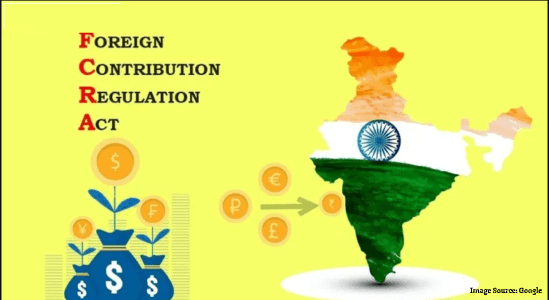AGAM: An Initiative for Good Governance | Shantanu Mishra & Pramod Kumar
The Foreign Contribution (Regulation) Act i.e. the FCRA act has been first introduced and enacted during the emergency period in India with the intention to keep an eye and regulate foreign funding and foreign influence on social, political, cultural, economic and religious discourse in the country and to prohibit the acceptance and utilization of foreign contributions which are detrimental to the national interest. Such influences could be religious groups carrying out conversion programmes, NGOs funding activists protesting against development projects like large dams, establishment of various industries, power plants etc. and in turn creating feelings of alienation and dissent among the local groups against the government.
FCRA Amendment 2020:- A tightening crunch in operations of Non- Profit Organization

Since the year 1976 when the act was first passed in the parliament, several amendments were made and in the year 2010 the UPA government made the act more harsh and strict by repealing the previous act and passing an entirely new one with the comment of the then finance minister P Chidambaram that “out of the almost 20,000 crores annual funding that NGOs receives in form of foreign contribution, no one knows where the 50% i.e. 10,000 crores rupees goes”.
Recently, on 29th September a further amendment in the act has been enacted making the act even harsher. Although the government has all the power to regulate the development sector but the amendments made have created a turmoil and distress for the operations of a large number of NGOs.
It not only overburden NGOs by increasing various regulatory compliances but also making it difficult, if not impossible, to comply with these provisions by decreasing the cap on administrative expenses to a mere amount of 20% which was earlier 50%. It hinders the smooth functioning of various NGOs and puts a threat on mere existence of both big and small NGOs which were otherwise contributing in capacity building activities, training programs, behavioral change activities, awareness programs, running research institutions, schools, hospitals etc. The employee expenses of these NGOs are non-administrative in nature and will be termed as overheads as most of their employees don’t interface with beneficiaries directly.
Small grass root level local NGOs in remote locations that works closely with local administrations doesn’t have much resources and that is why they work in close collaboration with large non-profits to ensure funding and constant growth. Projects and activities of these local NGOs mostly depends on grants from those large non-profits. These small impact driven and well-performing NGOs will vanish away and their existence will come to an end as the transfer of foreign contribution is now completely prohibited as per the provisions of new amendment.
Although the government has argued that the new amendment is to strengthen compliance, enhance transparency and accountability in the receipt and utilization of foreign contribution and facilitating genuine NGOs to work for the welfare of the society but the amendment made in section 11 doesn’t seems doing justice to the said objective as it empowers the central government to order for not utilizing or receiving further foreign funding based on a mere information or report from any arbitrary source and solely on the basis of the summary inquiry while any further inquiry is still pending i.e. the inquiry has not been completed.
Further the amendment made in section 13 arbitrarily gives the power to central government to suspend the certificate of NGOs for 180 more days i.e. for a total of 360 days while the consideration of the question of cancelling the certificate is pending. Governments should decide early on the pending consideration of the question of cancelling the certificate, as suspending the certificate for 6 more months will not serve any purpose and will only impact the development projects run by the NGOs as they will be at the mercy of the government to utilize and receive funds.
There is a dramatic addition of a new section i.e. section 14A which provides provision for any NGO to voluntarily surrender their certificate granted under the act. In ordinary circumstances no NGO will voluntarily surrender their certificate granted under the act. It doesn’t require the IQ of Einstein to understand the misuse of this provision. When any NGO will fund activists working against the regressive policies and autocracy of the government, the government will create troubles for the key persons involved in the managerial positions of that NGO and will create pressure on them to surrender their certificates voluntarily. In this way it will end the blame that might come upon the government.
Overall, it’s quite true that often various NGOs are found to be involved in tax evasion, money laundering activities, helping terror funding, making safe havens for criminals to deposit their illicit wealth and apart from these many key persons working in NGO sector have found to be accumulated unaccounted wealth that otherwise had to be used for the welfare purposes of poor people, so the government must ensure to apply proper check and balances to regulate the foreign funds so as to ensure that the funds are used only for the purposes it has been raised and not to be used against our national interest but at the same time it has to ensure and should not try to disrupt the smooth functioning of the fifth pillar of democracy i.e. the genuine NGOs and the persons involved in this sector who are working selflessly and serving the society without any substantial gains.
